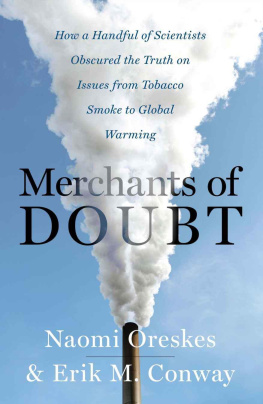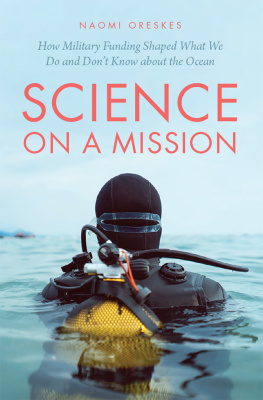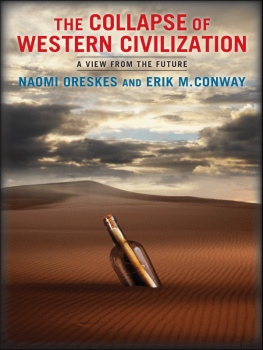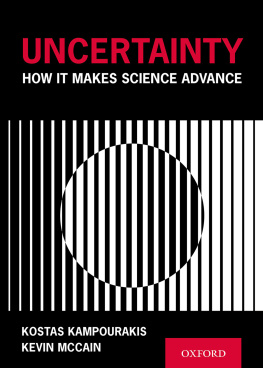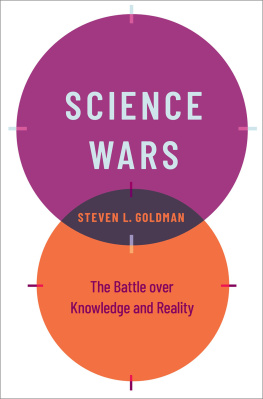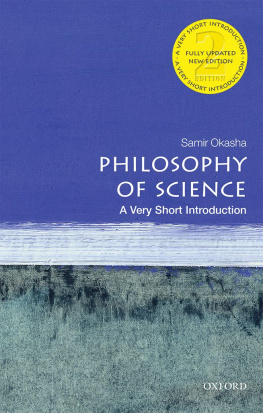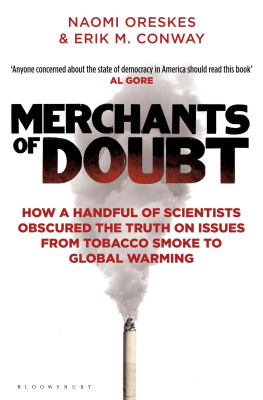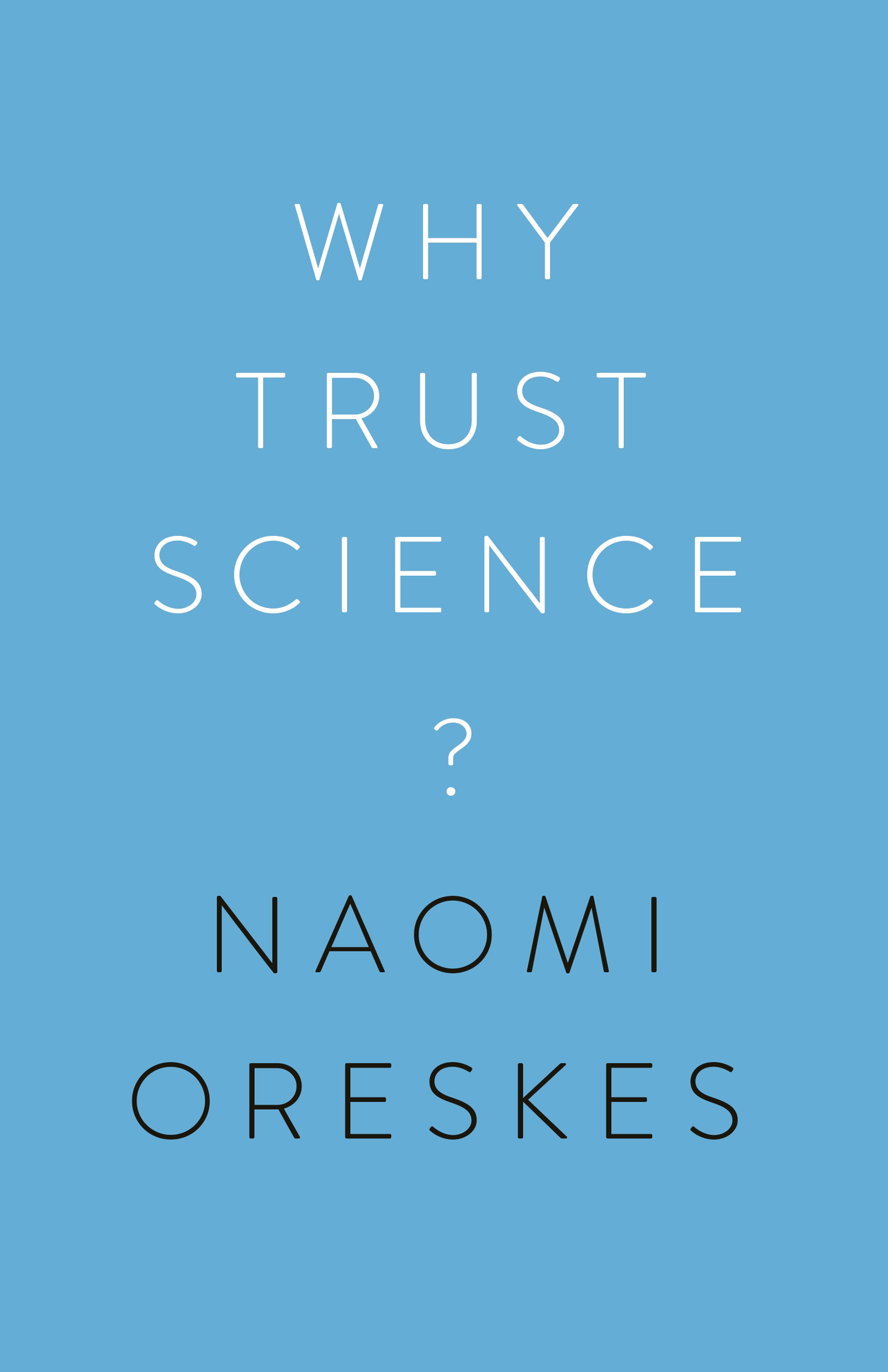ADDITIONAL ADVANCE PRAISE FOR
WHY TRUST SCIENCE?
This is a troubled time in the history of science and a perilous one for its reputation with the public, which is why now is exactly the right time for the fearless and brilliant Naomi Oreskes to explore this issue. The result is a dont-miss investigation into the very human nature of researchits successes, its failures, and its fundamental integrity in the search for truth.
DEBORAH BLUM, Pulitzer Prizewinning author of The Poison Squad
Why Trust Science? is a timely book by one of the worlds most important and trenchant observers of science and society. With misinformation and disinformation rampant today, caring citizens do not know what or whom to trust and have become confused about evidence, opinion, and partisan assertion. We need Oreskess clear look at how to recognize and use reliable knowledge. I cannot overstate the importance of this book now to scientists and citizens.
RUSH D. HOLT, CEO of the American Association for the Advancement of Science, former US House member
Naomi Oreskes, who grabbed our attention with her keen insights into climate denial, now tackles a threat to the very basis of an informed democracyattacks on science itself. Captivating, forceful, and grounded in critical analysis, Why Trust Science? is for anyone who cares about our world.
JANE LUBCHENCO, former head of the National Oceanic and Atmospheric Administration
In this authoritative defense of science, noted scientist and science historian Naomi Oreskes presents her case, subjects it to scrutiny by experts, and responds to the points raised. Her approach itself is a metaphor for the self-correcting machinery of science and the iterative process that leads science toward a better understanding of the natural world.
MICHAEL E. MANN, Penn State University, author of The Hockey Stick and the Climate Wars
This book poses an important and timely question. While acknowledging the ways that science can go off track and become unreliable, Oreskes provides a compelling and well-supported defense of science, arguing that its trustworthiness derives from its collective character rather than a particular method or the inherent objectivity of scientists.
ANGELA N. H. CREAGER, author of Life Atomic: A History of Radioisotopes in Science and Medicine
An insightful, lucid, and accessible discussion of a highly complex issue of great urgency and importance. Oreskess call for a socially engaged science might lead to substantial changes in our conception of the role of science in society and the ways in which science is organized institutionally.
KARIM BSCHIR, ETH Zrich
WHY
TRUST
SCIENCE
?
The University Center for Human Values Series
Stephen Macedo, Editor
A list of tiltes in this series appears at the back of the book.
WHY
TRUST
SCIENCE
?
NAOMI
ORESKES
PRINCETON UNIVERSITY PRESS
PRINCETON AND OXFORD
Copyright 2019 by Princeton University Press
Published by Princeton University Press
41 William Street, Princeton, New Jersey 08540
6 Oxford Street, Woodstock, Oxfordshire OX20 1TR
press.princeton.edu
All Rights Reserved
LCCN 2019937193
ISBN 9780691179001
eISBN 9780691189932
Version 1.0
British Library Cataloging-in-Publication Data is available
Editorial: Alison Kalett and Kristin Zodrow
Production Editorial: Sara Lerner
Text Design: Leslie Flis
Jacket Design: Amanda Weiss
Production: Jacqueline Poirier
Publicity: Sara Henning-Stout and Katie Lewis
Copyeditor: Brittany Micka-Foos
Trust, but verify.
RONALD REAGAN
CONTENTS
- ix
- Stephen Macedo
- Susan Lindee
- Marc Lange
- Ottmar Edenhofer and Martin Kowarsch
- Jon A. Krosnick
ACKNOWLEDGMENTS
This project would never have been completed without the considerable aid of my able and generous graduate student, Aaron van Neste, who helped me in countless ways. I am also deeply grateful to Erik Baker, Karim Bschir, Matthew Hoisch, Stephan Lewandowsky, Elisabeth Lloyd, Matthew Slater, Charlie Tyson, and an anonymous reviewer for comments on early drafts, and to all my students past and present, with whom I have thought through the question raised here. Whether Fleck was right about thought collectives, my own thinking has never been Cartesian.
Many of the ideas expressed here were developed over many years in the Science Studies Program at the University of California, San Diego (UCSD). I am grateful to UCSD colleagues past and present: Bill Bechtel, Craig Callender, Nancy Cartwright, Jerry Doppelt, Cathy Gere, Tal Golan, Philip Kitcher, Martha Lampland, Sandra Mitchell, Chandra Mukerji, Steven Shapin, Eric Watkins, and Robert Westman, with whom over many years I discussed the basis for scientific knowledge, truth, trust, proof, persuasion, and other weighty matters. I am also grateful to my current colleagues in the Department of the History of Science, Harvard University, with whom I have continued the conversation: particularly Allan Brandt, Janet Browne, Alex Cszisar, Peter Galison, and Sarah Richardson and to my colleagues in the Assessing Assessment Project, Keynyn Brysse, Dale Jamieson, Michael Oppenheimer, Jessica OReilly, Matthew Shindell, Mark C. Vardy, and Milena Wazeck, who have helped me to explore and analyze what it is that scientists really do.
This project would not have been possible without the backing and enthusiasm of Stephen Macedo, Melissa Lane, and the Princeton University Tanner Lecture committee; Al Bertrand, Alison Kalett, and Kristin Zodrow at Princeton University Press; and the financial support of the Tanner Foundation. [I declare no competing financial interests.]
Above all, I am grateful to all the scientists, past and present, who have worked hard to earn our trust. I hope that in some small way this book in part repays that debt.
WHY TRUST SCIENCE?
INTRODUCTION
Stephen Macedo
Science confronts a public crisis of trust. From the Oval Office in Washington and on news media around the world, the scientific consensus on climate change, the effectiveness of vaccines, and other important matters are routinely challenged and misrepresented. Doubts about science are sown by tobacco companies, the fossil fuels industry, free market think tanks, and other powerful organizations with economic interests and ideological commitments that run counter to scientific findings.
Yet we know that scientists sometimes make mistakes, and that particular scientific findings now widely believed will turn out to be wrong. So why, when, and to what extent should we trust science?
These questions could hardly be more timely or important. As extreme weather events become more common, sea levels rise, and climate-induced migrations flow across borders, nations around the world confront mounting costs and humanitarian crises. Yet so-called experts do not always agree. A local television meteorologist may report that it is merely some speculation from scientists that global warming is contributing to extreme weather events, such as the polar vortex that hit the Upper Midwest and Northeast of the United States in late January 2019. On another channel, a scientist at a well-regarded research center insists that we know why. Its all because of human activities increasing the greenhouse gases in the atmosphere that trap a lot more heat down by the surface.


